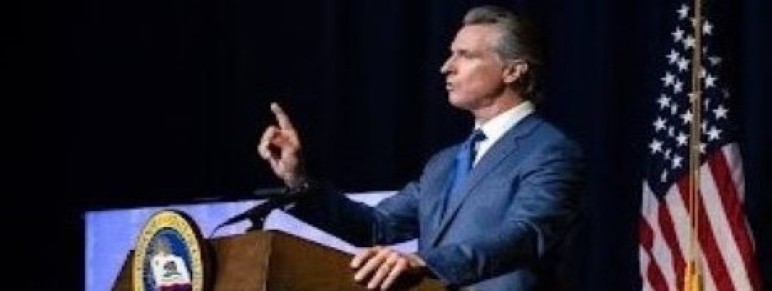During his much ballyhooed, nationally televised debate with Florida Gov. Ron DeSantis last week, California Gov. Gavin Newsom boasted that the state’s economy is “booming” and leads the nation.
“California has no peers,” Newsom declared. “California dominates.”
About 18 hours later, reality reared its ugly head. The Legislative Analyst’s Office revealed that state tax revenues are running tens of billions of dollars behind expectations due to a slowing economy, creating a monumental budget headache.
The dilemma became apparent when the November income tax filing deadline – seven months later than the original date – passed, and tax receipts for 2022 could finally be counted.
“With the recent receipt of various postponed tax payments, the impact of recent economic weakness and last year’s financial market distress on state revenues has become clearer,” the LAO authors said in a preliminary report on the state’s fiscal situation. “The postponed payments came in much weaker than anticipated.”
LAO analysts Brian Uhler, Chas Alamo and economist Seth Kerstein estimated that 2022-23 revenues are $26 billion under projections and “our updated revenue outlook anticipates collections to come in $58 billion below Budget Act projections across 2022-23 to 2024-25.”
California, they said, started seeing an economic downturn in 2022 as the Federal Reserve System raised interest rates to tame inflation.
“The number of unemployed workers in California has risen nearly 200,000 since the summer of 2022,” they added. “This has resulted in a jump in the state’s unemployment rate from 3.8 percent to 4.8 percent. Similarly, inflation-adjusted incomes posted five straight quarters of year-over-year declines from the first quarter of 2022 to the first quarter 2023.”
When Newsom and legislators finalized a 2023-24 budget in June, they knew that revenue estimates were shaky due to the postponed filing deadline, but assumed that they had a $30-plus billion gap to bridge. They now know that the hole was much larger. As Newsom finalizes his proposed 2024-25 budget to be unveiled in January, it must account for the current shortfall plus one of similar proportions for the next fiscal year.
Automatic spending reductions triggered by a slowing economy, such as a lower mandatory levels of K-12 education support, would – on paper at least – cover some of the gap. But they do little to solve the political dilemma confronting Newsom and legislators as they face pressure to maintain school spending and billions of dollars in other commitments made when the state treasury seemed to be overflowing.
They could tap the state’s reserves, currently more than $30 billion. That’s what the so-called “rainy day fund” is supposed to do when revenues flatten. However, the two-year problem is likely in the $40-50 billion range, which would quickly absorb reserves and still leave a big problem.
They could do what the state has done in decades past when periodic recessions have hammered revenues, particularly income taxes: run deficits and cover them with on- and off-the-books loans, such as temporarily cutting school aid or draining special funds.
Finally, they could do what those in the Democratic Party’s left wing have wanted to do for years: jack up personal and corporate income tax rates or impose new taxes on personal wealth.
Newsom is the political figure caught in the middle. By word and deed, he wants to concentrate on becoming a major figure in national politics, starting with being an effective surrogate for President Joe Biden’s re-election campaign.
“I’m here to tell the truth about the Biden-Harris record,” Newsom declared early in the debate.
Now, however, Newsom faces what could be a budget deficit of historic proportions because the economy he touted as “booming” is faltering. How he performs could define his political future.
Dan Walters is a columnist with CalMatters.


tax the rich
eat the rich
beg the rich to come back
What does Santa Claus say this time of year, especially?
What did Will Clark (on the San Francisco Giants, for those needing remedial edd-yew-kayshuhn) say when asked if he felt sorry for the Dodgers after they were eliminated from the playoffs years ago?
Or as one colleague did once, elsewhere, grinned and made that violin playing gesture